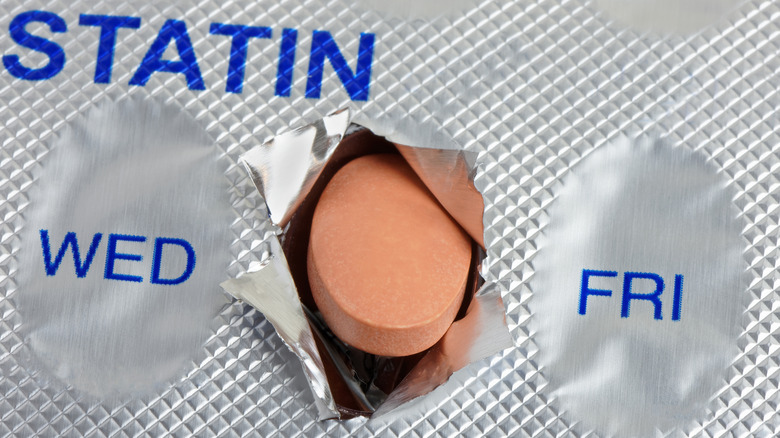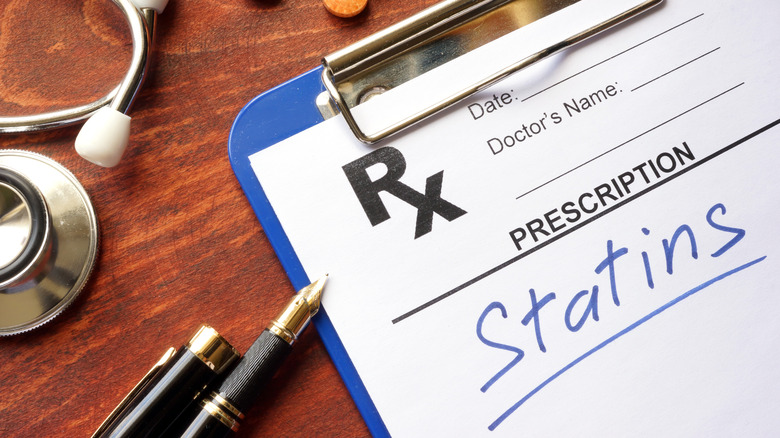Side Effects Of Taking Statins For Your Cholesterol
Statins are one of the most popular medications prescribed to patients who have high levels of "bad" cholesterol, otherwise known as low-density lipoproteins (LDL), in their blood. Statins have been around since the late 1980s, and there are a number of them on the market, according to the Journal of the American Medical Association. Most of them work by pulling cholesterol out of the blood.
When they were first introduced to the public, it was believed that only people with high levels of LDL would benefit from statins. However, the drugs also benefit people who are at risk of developing heart disease, even if they don't have high LDL levels (via Johns Hopkins Medical Center). There are more than 200 million people worldwide who take statins, and for most people, they are considered to be safe. That being said, if you are taking a statin or are considering doing so, you should know the side effects.
All statins have some side effects
The U.S. Food and Drug Administration has approved seven types of statins, and Healthline notes that the common side effects of all of them are muscle pain and digestive issues. Of the statins on the market, simvastatin is the most likely to cause muscle pain when taken in high doses. People have reported negative side effects with rosuvastatin as well, including headaches, rashes, and joint pain.
For people taking atorvastatin, the most common side effects are headaches and a runny nose. Fluvastatin is an option for people who experience muscle pain with other statin drugs. Its main side effects include diarrhea, vomiting, fatigue, and joint pain. Lovastatin has fewer adverse effects than most statins, with side effects ranging from digestive trouble to muscle pain and/or weakness. In addition, people taking pravastatin did not report as many muscle aches as users of other statins, but some experienced joint pain.
If you experience muscle pain along with fatigue, fever, diarrhea, or dark urine while taking a statin, you should contact your doctor. These symptoms could be an indication of rhabdomyolysis, which can cause kidney problems, according to Healthline.


